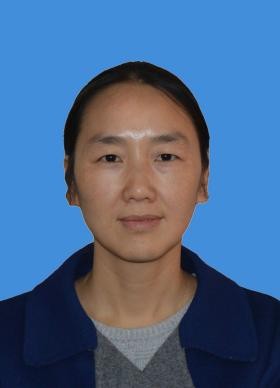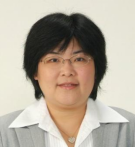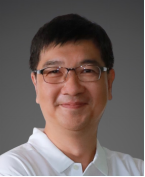 |
Data-driven
Evolutionary Optimization Prof. Chaoli Sun Taiyuan University of Science and Technology China |
Abstract:
Numerous real-world optimization tasks involve performance evaluations that rely on time-consuming or costly physical experiments or high-fidelity simulations,
collectively referred to as expensive optimization problems. Data-driven optimization algorithms leverage techniques from data science and machine learning to assist in optimizing such problems.
This talk will first introduce the fundamental concepts and taxonomy of data-driven evolutionary optimization.
Subsequently, it will explore key challenges associated with applying data-driven algorithms to large-scale expensive optimization problems,
as well as to expensive multi-/many-objective scenarios. Finally, applications of data-driven evolutionary optimization in the field of transportation will be discussed.
Biography:
Chaoli Sun is a Professor in the School of Computer Science and Technology at Taiyuan University of Science and Technology,
Taiyuan, China. She is a Senior Member of the IEEE and a Distinguished Member of the China Computer Federation (CCF). Prof.
Sun currently serves as Chair of the Intelligent Systems Applications Technical Committee (2024–2025) of the IEEE Computational Intelligence Society.
She is an Associate Editor of IEEE Transactions on Evolutionary Computation and IEEE Transactions on Artificial Intelligence,
and serves on the editorial boards of Engineering Applications of Artificial Intelligence, Complex & Intelligent Systems,
and Memetic Computing. She previously served as Chair of the Task Force on Data-Driven Evolutionary Optimization of Expensive Problems (2016–2020).
Her current research interests include computational intelligence, trusted computing, and self-organizing robotic systems.
 |
AI and Image Processing for Smart Ecosystems:
Enabling Connected Futures Across Transportation, Agriculture, and Healthcare Prof. Thi Thi Zin University of Miyazaki Japan |
Abstract:
The convergence of Artificial Intelligence (AI) and cutting-edge Image Processing is ushering in a transformative era for smart ecosystems, delivering unparalleled precision and efficiency across diverse sectors. This keynote explores the evolution and synergistic integration of AI technologies, tracing their impact from foundational applications in Intelligent Transportation Systems (ITS) to advanced solutions in precision agriculture and health monitoring.
Initially, AI’s role in ITS revolutionized traffic safety and management through automated detection of road signs, pedestrians, and environmental cues. Building on this legacy, we delve into how real-time AI-driven image analytics are now empowering smart dairy farming and comprehensive livestock health monitoring. These applications facilitate predictive health management, optimize operational workflows, and foster sustainable, intelligent farm ecosystems.
Furthermore, this presentation highlights crucial interdisciplinary collaborations in healthcare. We examine AI-enabled monitoring solutions tailored for elderly care and infant health, which leverage sensor fusion and intelligent data interpretation. These systems are pivotal in enhancing patient safety, improving quality of life, and enabling personalized care delivery.
Ultimately, this keynote underscores the profound potential of AI-driven innovations to create interconnected, intelligent environments. By seamlessly bridging smart transportation, precision agriculture, and human healthcare, we present a holistic and actionable vision for the development of future smart communities.
Biography:
Dr. Thi Thi Zin is the First Woman Professor in the Faculty of Engineering, University of Miyazaki, Japan. She was born in Yangon, Myanmar. She received her Bachelor Degree of Science specializing in Mathematics from Yangon University in 1995. She earned her first Master Degree of Information Science from University of Computer Studies, Yangon in 1999. She received her second Master Degree of Engineering (Electrical and Information Engineering) in 2004 from Osaka City University, Japan. She received her Ph.D. degree in the field of Image Processing in 2007 from Graduate School of Engineering, Osaka City University, Japan.
From 2007 to 2009, she was awarded a Postdoctoral Research Fellow of Japan Society for the Promotion of Science (JSPS). After the JSPS, she served as a Specially Appointed Researcher and Specially Appointed Assistant Professor in the University of Tokyo and Osaka City University until 2013. Then, she was appointed as an Associate Professor in the Faculty of Engineering, University of Miyazaki. In 2016, she was promoted to the Full Professorship in Faculty of Engineering, University of Miyazaki, Japan. Her research interests include Human Behavior Understanding, Intelligent Transportation systems, Cow Behavior Analysis, Health Care Monitoring Systems and Image Recognition. She is a member of IEEE. Dr. Thi Thi Zin has published more than 125 research papers in reputable International Journals including IEEE Access, IEEE Transactions on Consumer Electronic, Scientific Reports and she presented more than 150 research papers in International Conferences.
Dr. Thi Thi Zin has served in multiple leadership roles across IEEE conferences. She was Conference Chair for IEEE-GCCE 2020 and IEEE-LifeTech 2022, and held organizing roles for IEEE SMC 2018 and ICGEC (2015, 2024). From 2021 to 2023, she served on the IEEE CTSoc Board of Governors and led the CTSoc Women in Engineering Committee. Her ongoing involvement in WIE reflects her dedication to supporting and mentoring the next generation of engineers.
 |
From CAN Bus to Intelligent Vehicular Networks
Prof. Shi-Huang Chen Shu-Te University Taiwan |
Abstract:
The in-vehicle network has become the digital backbone of modern smart vehicles, evolving from the early adoption of the Controller Area Network (CAN) to today’s complex architectures that integrate multiple protocols such as CAN FD, FlexRay, Automotive Ethernet, and Time-Sensitive Networking (TSN). With more than 70–100 ECUs in a single vehicle, seamless communication among powertrain, safety, infotainment, and advanced driver-assistance systems (ADAS) is critical to ensure performance, safety, and user experience.
This keynote explores the technological evolution of automotive communication systems and highlights how CAN Bus remains central while being extended by high-bandwidth and low-latency networks to support autonomous driving and vehicle-to-everything (V2X) applications. Special attention will be given to the challenges of cybersecurity, real-time constraints, and system dependability in highly connected vehicles.
By bridging traditional automotive communication protocols with AI-driven analytics and 5G-enabled cooperative vehicular systems, the next generation of in-vehicle networks will not only optimize vehicle performance but also transform mobility into a secure, scalable, and intelligent ecosystem. This keynote will provide insights into ongoing research, industrial applications, and future directions shaping the smart vehicular technology landscape toward 2030.
Biography:
Shi-Huang Chen obtained his Ph.D. degree in electrical engineering from National Cheng Kung University, Tainan, Taiwan, in 2002. Between 2001 and 2003, he served as a research engineer at AVXing Inc., Kaohsiung, Taiwan. In February 2003, he joined the Department of Computer Science and Information Engineering at Shu-Te University, Kaohsiung, as an Assistant Professor.
Currently, Dr. Chen serves as the Distinguished Professor in the Department of Computer Science and Information Engineering, the Director of the Telematics Technology Development Center, the Dean of the College of Informatics, and the Vice President of Shu-Te University. Prof. Chen was selected as the "Outstanding Teaching Teacher" at Shu-Te University in the academic years 2008, 2009, and 2021, respectively. His research interests encompass wavelet transform, speech/audio processing, video processing, vehicle automotive electronics (CAN Bus), vehicle diagnosis (OBD), and applications of embedded telematics.
 |
Multivariate Time Series Prediction in Edge Computing Scenarios and Its Applications
Prof. Wei Li Harbin Engineering University China |
Abstract:
Edge computing, a key enabler of industrial automation and smart cities, enhances real-time responsiveness by processing data near the source. However, its application in multivariate time series prediction faces three critical challenges: resource constraints, dynamic network topologies, and fragmented data streams, which lead to the failure of conventional methods due to rigid static models, poor adaptability, and the trade-off between lightweight design and accuracy. To address these challenges, this study proposes a novel closed-loop framework integrating dynamic spatiotemporal primitives, fragmentation-aware joint modeling, and topology-decoupled inference. The framework provides a lightweight, autonomous solution for industrial IoT, smart grids, and other edge scenarios, balancing efficiency with accuracy while ensuring robustness in dynamic environments.
Biography:
Dr. Wei Li is a Professor at the College of Computer Science and Technology, Harbin Engineering University,
where he also serves as Deputy Director of Heilongjiang Provincial Laboratory of New Generation Network Technologies and Information Security.
As an IEEE/ACM Member and CCF Senior Member, he holds executive committee positions in CCF's IoT/Databases/Human-Computer Interaction Technical
Committees and Smart Transportation Special Interest Group. After obtaining his Ph.D. from UNSW's School of Computer Science and Engineering
in 2019, he worked as a Research Fellow at the University of New South Wales before returning to China. His research expertise spans database
systems, graph data management/mining, spatiotemporal data analysis, and location-based services, with over 60 publications in these areas.
He currently serves as Associate Editor for JIHMSP and Guest Editor for Applied Sciences, while actively contributing as PC member for
conferences (AAAI, ICASSP, DASFAA) and reviewer for top-tier journals (TKDE, TKDD) and conferences (ICDE, VLDB, ACM MM).